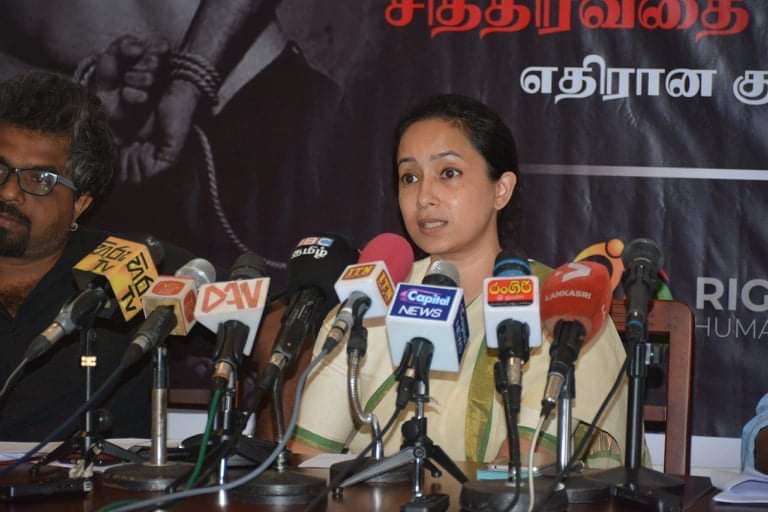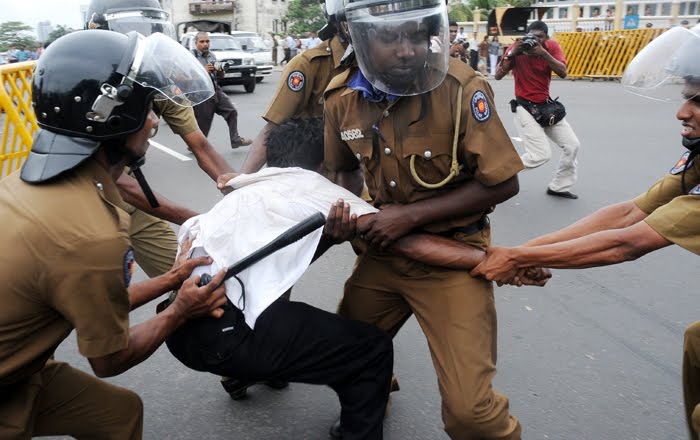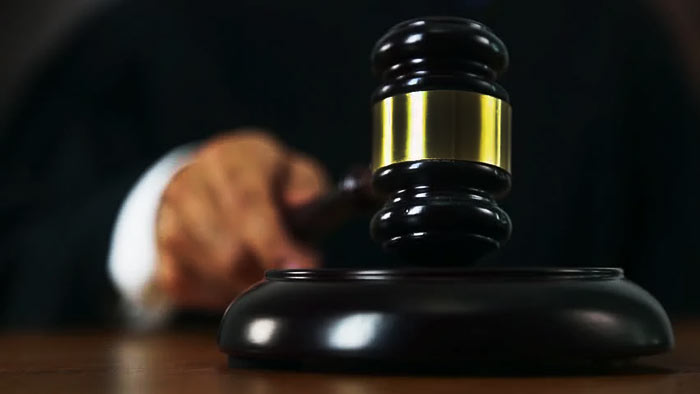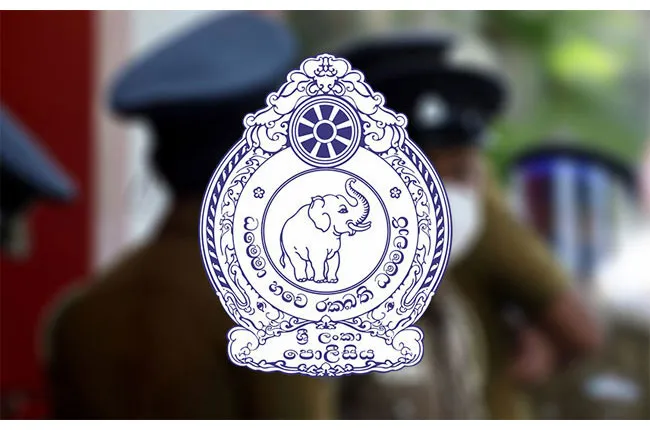Human rights lawyer Armisa Tiegel has issued a statement on the failure to introduce the Prevention of Terrorism Amendment Bill.
By Ermiza Tegal
The Prevention of Terrorism Act of 1979 (PTA) is a draconian piece of legislation that is responsible for the extensive erosion of civil liberties of the people of Sri Lanka. Harm has been caused to persons directly affected by its provisions, as well as specific communities who have been targeted by the PTA. Moreover, it has undermined the safeguards of security and liberty of all Sri Lankans.
It was meant as a temporary legislation and was passed under questionable circumstances. The Cabinet at the time decided that it would be passed with a 2/3 majority in parliament recognising that it contained provisions that were unconstitutional. The PTA has remained in force for over 40 years and has given rise to numerous calls nationally and internationally for its reform and repeal.
The Bill gazetted on 27 January 2022 to amend the Prevention of Terrorism Act No. 48 of 1979 could have been a genuine attempt to address its most dangerous and historically abused provisions. Very regrettably, it appears on a preliminary reading, that the minimal reforms proposed fail to address the most significant problems identified with the PTA. Indeed, the reforms do not address any of the following four major problems with the PTA:
1. Definition of terrorism: The proposals do not include an amendment to the definition of terrorism, which is overly broad and has led to many instances of arbitrary arrest and misuse of the law.
2. Lack of judicial supervision:
The proposed Bill does not ensure that the powers of arrest and detention are specifically made subject to judicial scrutiny particularly at the first instance, before the Magistrate. The role of Magistrate has not been explicitly enhanced to ensure that arbitrary arrest or detention is prevented.
3. Confessions:
The very controversial provision – section 16 – that gives cover to the use of torture to obtain confessions from suspects has not been addressed. This section is seen as responsible for the close association of torture with the PTA.
4. Failure to recognise the fundamental value of physical liberty of a person:
The prohibition of arbitrary deprivation of liberty has acquired customary international law status and constitutes a jus cogens norm. Any curtailment must be demonstrated as not being arbitrary – meaning reasons must be given and it must amount to proportionate action in the circumstances. The introduction of a right to apply for bail after 12 months of detention without trial, means that a person can be held in remand or in detention for a minimum period of 12 months without such person having the possibility to make a case before a judge that there are sufficient reasons for granting bail. While fundamentally any detention, even for a day, is a serious breach of a fundamental freedom, these amendments read as a whole, pay scant regard to this internationally recognised non-derogable right.
It is unfortunate that the majority of the actual amendments proposed in the amendment are superficial and will have little real-world meaning for persons subject to the PTA. As demonstrated below, the proposed amendments are often impractical and unlikely to prevent the harms associated with the PTA.
Proposed Amendment: Clause 3 – Magistrates have a duty to visit places of detention and inquire into the well-being and welfare of the suspects and conditions of detention
Comment:
Given that Magistrates in practice are unable to effectively supervise prisons as is currently within their mandate, there is no real practical value in this amendment. In any event, we know from studies and experience that it is extremely unlikely that the person will report torture, ill-treatment or even poor conditions of detentions particularly if they are likely to continue to be kept in custody within the system.
Proposed Amendment: Clause 3 – The Human Rights Commission to be served with a copy of the Detention Order
While this appears to be a salutary amendment, it makes no practical difference whatsoever to the suspect in terms of addressing any grievance relating to an arbitrary arrest or threat of prolonged detention.
Proposed Amendment: Clause 4 and 12 – Suspects are permitted to challenge Detention Orders and any directions given in fundamental rights applications and writ applications
The jurisdictions referred to are in fact already accessible to PTA detainees and have been accessed from time to time mostly by those who have the means to access the Court of Appeal and the Supreme Court.
This amendment affords no new legal safeguards and merely makes explicit an existing entitlement. Additionally, without a scheme to provide effective legal aid to those remanded or detained under the PTA, this provision is of limited practical value particularly to indigent persons affected by this law.
Proposed Amendment: Clause 5 – Attorneys at law have the right to access suspects or detainees. Persons remanded or detained have a right to communicate with relatives
Again, these are rights that suspects and detainees in principle are entitled to under Sri Lankan law. While it is good to have these rights explicitly stated in the law, in terms of real value it fails to recognise the numerous restrictions in practice faced by persons affected by the PTA. For example, some are remanded or detained in facilities hundreds of miles away which drastically reduces the ability of family members to visit.
Regarding access by lawyers, time and again lawyers have complained about prison personnel standing by or being within earshot of the legal consultation. In a very recent experience, the prison personal even intervened to direct the questions and answers exchanged between the remandee and the lawyer.
Therefore, the mere proposal of a bare right such as to access an attorney at law, without expressing the need for confidentiality of communication has little meaning.
Proposed Amendment: Clause 6 – Provisions relating to supervision for complaints of torture has been included to those affected by Section 11 which relates to restriction orders to be issued by the Minister curtailing various civil liberties of movement, freedom of assembly, freedom of speech and expression
Essentially, Section 11 relates to restriction orders made as an executive and not a judicial order. No reform has been suggested to bring such serious restriction of fundamental liberties under judicial scrutiny. The attention paid to complaints of torture relating to persons affected by Section 11 does not correspond with experiences of persons under the PTA. This must be contrasted with the actual serious concern related to the practice of torture that is associated with Section 16 regarding confessions – which stands and has not been repealed in the proposed amendments.
Proposed Amendment: Clause 8 – The amendment of Section 15 to introduce day-to-day trials
This amendment does not address the long years served by suspects in arbitrary detention before getting to the trial stage and the often years taken to conduct the trial. Considering the several examples of delays that the judicial system is afflicted with there cannot be any confidence that trials will be concluded in a timely manner. Speedy and effective conducting of trials requires, apart from modalities of day-to-day trial a serious commitment to a practical case management system.
Proposed Amendment: Clause 10 states that a person remanded or detained for 12 months becomes entitled to seek bail from the Court of Appeal
The effectiveness of this proposed clause is undermined by subsection 2 of the same clause stating that the State has the power to secure an order from the High Court to keep the person in remand custody till the conclusion of the trial. Yet another provision within the same clause states that once 12 months has passed after an indictment has been served and if the trial is not commenced, that bail can be sought.
This is an extremely ineffective clause because all the State is required to do to ensure that this suspect cannot make an application for bail is to commence the trial, meaning conduct at least one day of trial within the given 12 months. These provisions are completely ineffective and provides the State with all the leverage needed to keep persons in remand custody for extended periods of time.
The only salutary amendment contained in the proposed Bill is in Clause 7, which addresses the repeal of Section 14 relating to Prohibition of Publications.
Even if the above amendments to the PTA are passed by Parliament in their proposed form, the PTA will remain an affront to basic concepts of physical liberty. The proposed reforms reflect the lack of reliance on evidence and participation of stakeholders, especially those whose lived reality is impacted by the PTA.
That the Government has chosen to propose changes that are cosmetic rather than substantive in nature is unconscionable, disingenuous and reflects its lack of regard for Sri Lankan citizens’ fundamental right to liberty and the State’s international obligations to be the primary protector of these freedoms.
(The writer is an Attorney-at-Law)




